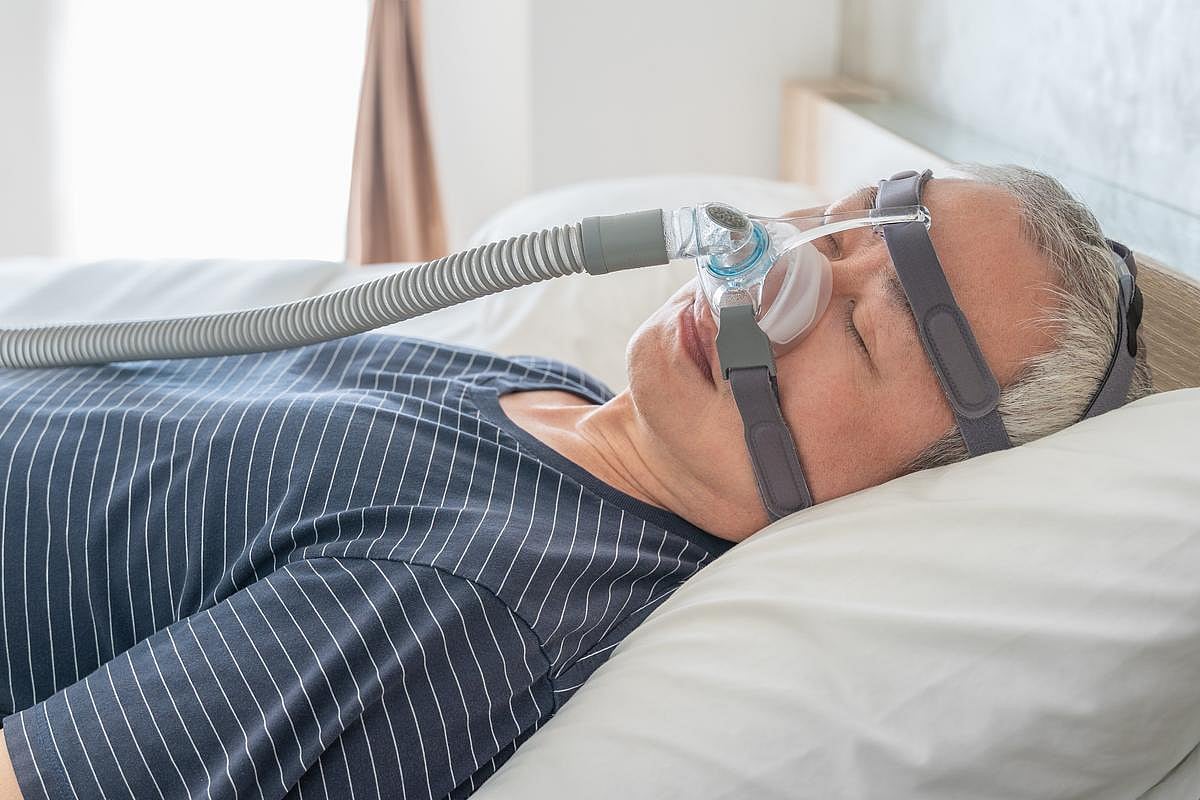Get Healthy!

- Posted November 25, 2025
Untreated Sleep Apnea Could Greatly Raise Odds for Parkinson's
Add one more malady to the potential risks from untreated sleep apnea: Parkinson’s disease.
A new study involving 11 million U.S. veterans finds that a person’s odds of developing Parkinson’s nearly doubled if they were diagnosed with sleep apnea but hadn’t used a continuous positive airway pressure (CPAP) device to help control it.
Having untreated sleep apnea isn’t “a guarantee that you’re going to get Parkinson’s, but it significantly increases the chances,” said study co-author Dr. Gregory Scott. He’s assistant professor of pathology at Oregon Health & Science University (OHSU) and a pathologist at the Veterans Affairs (VA) Portland.
The research was published Nov. 24 in JAMA Neurology.
According to information supplied by the researchers, about one million Americans are currently diagnosed with Parkinson’s, an incurable neurodegenerative illness characterized by increasing disability.
Risks for the illness rise steadily after the age of 60.
In the new study, Scott and colleagues looked at the medical records of 11 million U.S. military veterans who received VA care between 1999 and 2022.
Even after adjusting for potential confounding conditions such as obesity, age and high blood pressure, the team found that having untreated sleep apnea nearly doubled the odds for Parkinson’s compared to folks whose apnea was treated by CPAP.
Sleep apnea involves frequent breathing difficulties during sleep that can affect the amount of oxygen going to the brain.
“If you stop breathing and oxygen is not at a normal level, your neurons are probably not functioning at a normal level either,” study lead author Dr Lee Neilson, explained in a OHSU news release.
“Add that up night after night, year after year, and it may explain why fixing the problem by using CPAP may build in some resilience against neurodegenerative conditions, including Parkinson’s,” said Neilson, who is assistant professor of neurology at OHSU and a staff neurologist at the Portland VA.
He said the new findings are so persuasive for a link between apnea and Parkinson’s that “I think it will change my practice.”
Neilson noted that new-generation CPAP is easier to use and more effective than ever before.
"The veterans who use their CPAP love it," he said. "They're telling other people about it. They feel better, they're less tired. Perhaps if others know about this reduction in risk of Parkinson's disease, it will further convince people with sleep apnea to give CPAP a try.”
More information
There's more on the CPAP device at the Cleveland Clinic.
SOURCE: Oregon Health & Science University, news release, Nov. 24, 2025

